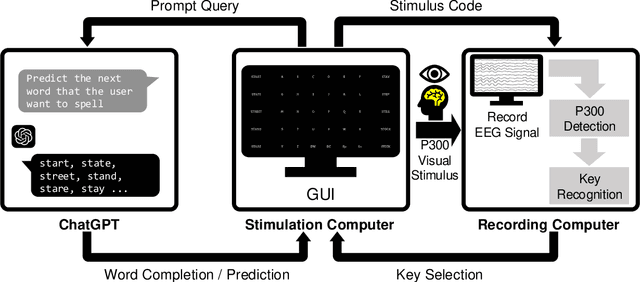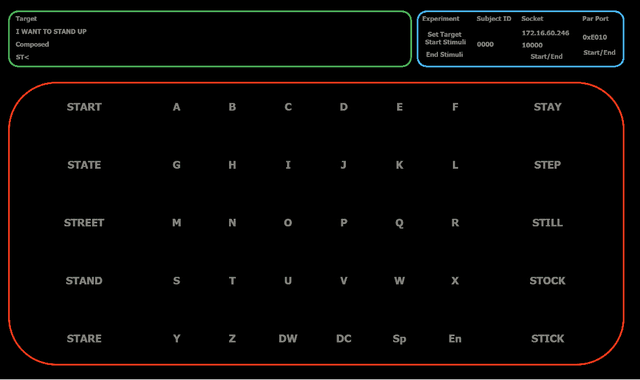Jiazhen Hong
EEGM2: An Efficient Mamba-2-Based Self-Supervised Framework for Long-Sequence EEG Modeling
Feb 25, 2025Abstract:Deep learning has achieved significant progress in the development of electroencephalogram (EEG) foundation models, with Transformer-based architectures excelling at capturing long-range dependencies. However, their quadratic computational complexity presents challenges in memory efficiency, training, and inference speed, limiting their scalability and generalizability as a foundation model. In this paper, we propose EEGM2, a self-supervised framework based on structured state space duality (SSD) that overcomes these limitations. EEGM2 introduces three key innovations: (1) a reconstruction-based framework that captures both local and global EEG features through Mamba-2 structured state space models, (2) a spatiotemporal-aware loss function that enhances robustness to noise and preserves spectral information, and (3) a multi-branch receptive field input embedding strategy that improves cross-subject generalization and stability for EEG sequences of varying lengths. In comparison to traditional pretraining methods, on raw EEG or latent representation spaces, EEGM2 shows superior performance on long-sequence tasks, where conventional models struggle. Our experimental results on six EEG datasets validate that EEGM2 not only achieves state-of-the-art cross-domain accuracy but also reduces computational overhead, making it a more efficient solution for deployment on resource-constrained BCI devices.
ChatBCI: A P300 Speller BCI Leveraging Large Language Models for Improved Sentence Composition in Realistic Scenarios
Nov 23, 2024



Abstract:P300 speller BCIs allow users to compose sentences by selecting target keys on a GUI through the detection of P300 component in their EEG signals following visual stimuli. Most P300 speller BCIs require users to spell words letter by letter, or the first few initial letters, resulting in high keystroke demands that increase time, cognitive load, and fatigue. This highlights the need for more efficient, user-friendly methods for faster sentence composition. In this work, we introduce ChatBCI, a P300 speller BCI that leverages the zero-shot learning capabilities of large language models (LLMs) to suggest words from user-spelled initial letters or predict the subsequent word(s), reducing keystrokes and accelerating sentence composition. ChatBCI retrieves word suggestions through remote queries to the GPT-3.5 API. A new GUI, displaying GPT-3.5 word suggestions as extra keys is designed. SWLDA is used for the P300 classification. Seven subjects completed two online spelling tasks: 1) copy-spelling a self-composed sentence using ChatBCI, and 2) improvising a sentence using ChatBCI's word suggestions. Results demonstrate that in Task 1, on average, ChatBCI outperforms letter-by-letter BCI spellers, reducing time and keystrokes by 62.14% and 53.22%, respectively, and increasing information transfer rate by 198.96%. In Task 2, ChatBCI achieves 80.68% keystroke savings and a record 8.53 characters/min for typing speed. Overall, ChatBCI, by employing remote LLM queries, enhances sentence composition in realistic scenarios, significantly outperforming traditional spellers without requiring local model training or storage. ChatBCI's (multi-) word predictions, combined with its new GUI, pave the way for developing next-generation speller BCIs that are efficient and effective for real-time communication, especially for users with communication and motor disabilities.
A Geometric Approach to $k$-means
Jan 13, 2022



Abstract:$k$-means clustering is a fundamental problem in various disciplines. This problem is nonconvex, and standard algorithms are only guaranteed to find a local optimum. Leveraging the structure of local solutions characterized in [1], we propose a general algorithmic framework for escaping undesirable local solutions and recovering the global solution (or the ground truth). This framework consists of alternating between the following two steps iteratively: (i) detect mis-specified clusters in a local solution and (ii) improve the current local solution by non-local operations. We discuss implementation of these steps, and elucidate how the proposed framework unifies variants of $k$-means algorithm in literature from a geometric perspective. In addition, we introduce two natural extensions of the proposed framework, where the initial number of clusters is misspecified. We provide theoretical justification for our approach, which is corroborated with extensive experiments.
 Add to Chrome
Add to Chrome Add to Firefox
Add to Firefox Add to Edge
Add to Edge